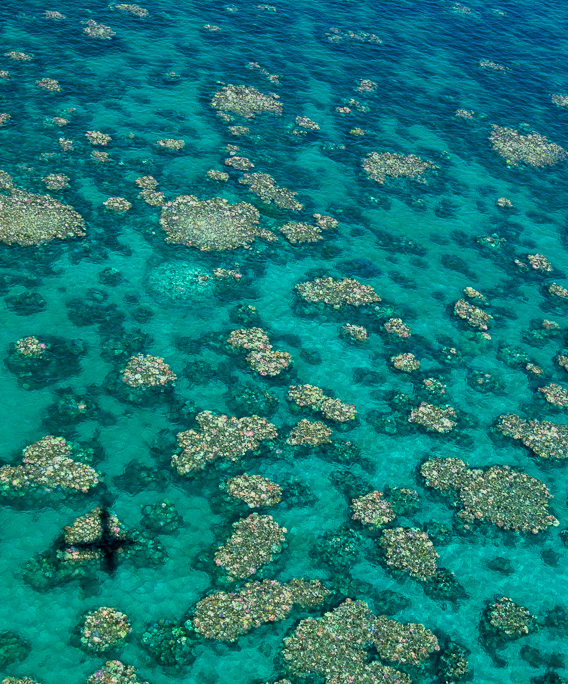Reef bleach under UN eye
 Mass coral bleaching has been reported in the midst of a UN inspection of the Great Barrier Reef.
Mass coral bleaching has been reported in the midst of a UN inspection of the Great Barrier Reef.
The Great Barrier Reef Marine Park Authority (GBRMPA) says the reef is suffering “mass bleaching”, stripping corals of their colour due to the stress of warmer and more acidic seas
Aerial surveys have detected coral bleaching across a large area of the system, “confirming a mass bleaching event, the fourth since 2016,” GBRMPA said in a statement.
At the same time, a United Nations monitoring mission has been assessing whether the World Heritage site is being protected from climate change.
UN authorities are speaking to scientists, conservation groups, and government authorities before reporting back to the World Heritage Committee, which may decide to list the reef as in danger.
“The beloved, vibrant colours of the Great Barrier Reef are being replaced by ghostly white coral,” says Greenpeace Australia climate impact activist Martin Zavan.
“If the government is genuine about letting the UN mission form a comprehensive picture of the state of the Reef, then it must take the mission to the northern and central Reef.”
“Here, corals are being cooked by temperatures up to four degrees above average, which is particularly alarming during a La Niña year when ocean temperatures are cooler.”
The UN had threatened to downgrade the reef's World Heritage listing in 2015, but Australia was able to delay this decision by creating a “Reef 2050” plan that poured billions of dollars into protection.
The Federal Government announced a further $1 billion in funding earlier this year to improve water quality, reef management and conservation, and research.
Amanda McKenzie, CEO of Climate Council Australia, says it may not be enough to avoid the new rating.
“Unfortunately, as more severe bleaching is reported across our beloved Great Barrier Reef, we can see these devastating events are becoming more common under the continuing high rate of greenhouse gas emissions,” she said.
“To give our Reef a fighting chance, we must deal with the number one problem: climate change.
“No amount of funding will stop these bleaching events unless we drive down our emissions this decade.”
This week’s federal budget included $1 billion for the reef spread over nine years, mostly to help clean up agricultural run-off affecting water quality.







 Print
Print